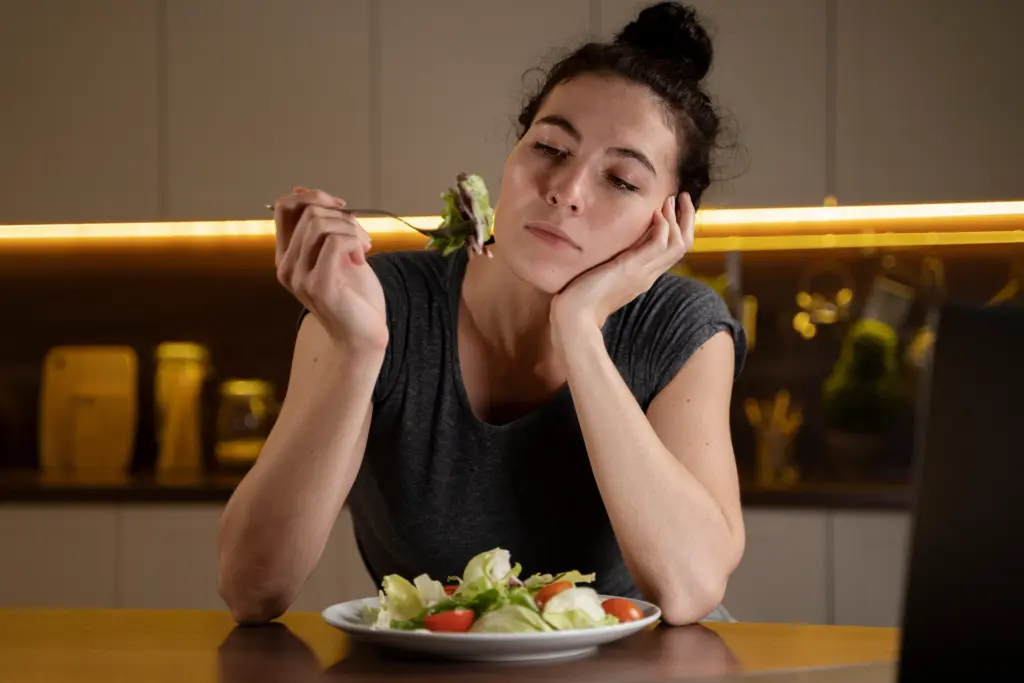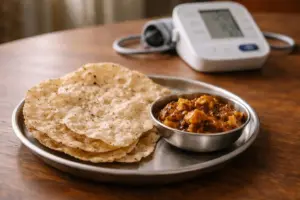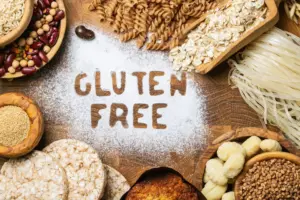
Eating during depression: Have you ever noticed that when you’re feeling low, food doesn’t seem as inviting? For many people, depression doesn’t just impact emotions; it also impacts appetite. Some eat too much for comfort, while others completely lose interest in eating. If your appetite is fading, you’re not alone, and it can be managed.
Why does depression affect appetite?
Depression isn’t just “feeling sad”. It changes brain circuits tied to hunger and reward. Motivation drops, and foods you loved may feel flat. Because mood chemicals also influence appetite, an imbalance can blunt your desire to eat. Add fatigue and stress, and even grabbing a snack can feel huge. If you’re skipping meals, it’s not laziness; it’s your mind and body responding to depression.
Also Read | Emotional eating: Why it happens and how to stop it
Why is eating important even when you don’t even feel hungry?
Food isn’t just fuel; it’s medicine for your body and brain. When you don’t eat enough, you feel more wiped out, and your brain misses key nutrients. Think of meals as giving your mind the tools to heal. You wouldn’t expect a phone to work without charging; your body can’t either.
Practical tips when depression hampers appetite:
Starts small and simple:
Don’t force a full meal if it feels overwhelming. Try small servings of a banana, toast, or yoghurt. Tiny steps still move you forward.
Set gentle reminders:
When your appetite vanishes, it’s easy to go hours without eating. Set gentle phone reminders for a small snack, a drink, or a quick smoothie at set times, so you’re not waiting around for hunger to show up.
Focus on nutrient-dense foods:
Even if you eat less, ensure that it is nutritious. You can choose foods rich in vitamins, minerals, and proteins, like eggs, soups, and veggies. These foods will provide your brain and body with the energy they need to function.

Go for easy-to-make meals:
Cooking can feel exhausting when you’re feeling low on energy. Keep quick, healthy options around:
- Instant oatmeal
- Pre-cut fruits and veggies
- Nuts and seeds
- Smoothies
- Whole-grain crackers with cheese
Simple meal ideas for low-energy days:
Here are a few easy ideas to maintain your nutrition without too much effort:
- Breakfast: Overnight oats with fruit, or a smoothie with banana and yoghurt.
- Lunch: Whole-wheat wrap with chicken or veggies.
- Dinner: Soup (store-bought or homemade), scrambled eggs with toast.
- Snacks: Nuts, boiled eggs, fruit, and granola bars.
Also Read | Eat happy: 10 serotonin-boosting foods that improve mood naturally
It’s common for depression to dull your appetite. Even so, nourishment matters for healing. Start gently: keep simple snacks handy, sip a smoothie, and lean on someone you trust. Little actions add up and help your body find its rhythm again.








